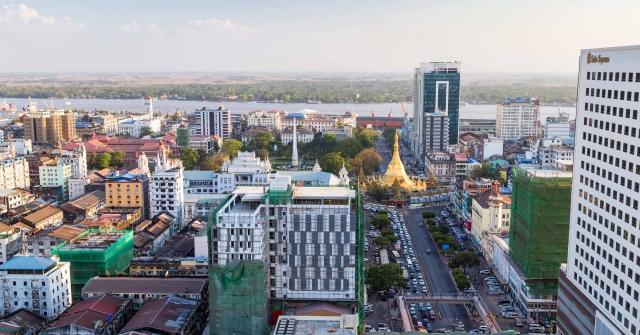Officially known as the Republic of the Union of Myanmar, Myanmar (or Burma, as it is sometimes still called) is a Southeast Asian country that shares borders with India, Bangladesh, China, Laos, and Thailand. For businesses that are in the process of expanding internationally, it represents a huge wealth of untapped potential, particularly in terms of agriculture, telecom, manufacturing, and infrastructure. Moving into the Myanmar market does, however, present some challenges and potential drawbacks, too. But for businesses eyeing the Southeast Asian state, understanding the challenges of doing business in Myanmar can help steer clear of avoidable risks—and offer a clearer path towards the rewards Myanmar offers.
What Employers Need to Know About Doing Business in Myanmar
The first thing to understand about the country is that the possibility of a foreign organization even doing business there at all was virtually unthinkable as recently as eight short years ago. Military rule established during the 1950s essentially closed off the entire country to foreign businesses of any type. All of that changed, however, in 2011 when Myanmar began implementing reforms to open up its frontier economy to the world.
Two foreign telecom licenses were issued at that time, along with 13 foreign bank licenses. The Thilawa Special Economic Zone was also created, as was the Yangon Stock Exchange. That year marked a major turning point when Myanmar didn't just encourage foreign investment opportunities, but embraced them with open arms. It's important to note that both European Union and United States sanctions have also been fully lifted, with the sole (and understandable) exception of those lobbied against key military leaders and drug lords.
A tremendous amount of excitement has also been generated by not only a new Myanmar Investment Law, but a newly enacted Companies Law. All told, the frontier market is largely untapped by western companies, representing incredible global expansion opportunities.
Doing Business in Myanmar’s Three Key Regions
While the largest mainland state among all Southeast Asian countries, Myanmar can be divided into three main regions:
- Yangon: the commercial capital
- Naypyitaw: the political capital
- Mandalay: considered by many to be the center of Burmese culture
With reference to the enormous amount of telecom development taking place in the country, Huawei built 40% of the country's towers and ZTE has built roughly 60%, amounting to 1500 towers across the country—most of them exclusively in these three key regions. Today, a mixed of fully foreign-owned telecom companies and joint ventures operate in Myanmar with 4G network capabilities.
In terms of the workforce, Myanmar is a country of just over 53 million, and approximately 65% of the population is under the age of 40—with the monthly average income for an employee at just $120 USD. Mobile penetration is at 90%. Facebook penetration is on the rise, with the country having amassed more than 10 million users over the last few years.
Additional Considerations for Doing Business in Myanmar
There are drawbacks to operating in any country, and Myanmar is no exception. In addition to an ongoing humanitarian crisis, military instability in the north could prove to be a challenge for even the strongest organizations. Thankfully, the commercial capital of Yangon is safe; the conflict in the north has not spread.
Likewise, government factions may be difficult to adequately address; decision-makers should keep in mind that the country is still in the early stages of constructing its new economic environment. A lot has happened to Myanmar since 2011, and a lot will continue to happen over the next decade. This is not something businesses can avoid, and should be prepared to operate with these considerations in mind.
Mitigate Risks of Doing Business in Myanmar with an Experienced Expansion Partner
Doing business in Myanmar can offer tremendous opportunities for businesses that are looking to expand into Southeast Asia. It also brings with it a fair amount of uncertainty, too—which is why teaming up with a partner like Velocity Global can make your Myanmar expansion function much more smoothly.
Velocity Global’s Employer of Record solution and team of expansion experts help you navigate the complexities of expanding into Myanmar—or any of the other 185 countries in which we operate. From providing country-specific reports to handling all risk mitigation and compliance, an Employer of Record allows businesses to break into new markets with a light footprint.
If you'd like more information about what it takes to expand into Myanmar, or if you have any questions about how a global Employer of Record can have your organization operating in a new international market in a matter of days, reach out to Velocity Global today.
Topic:
Global Growth



